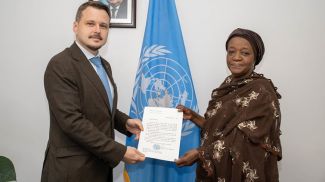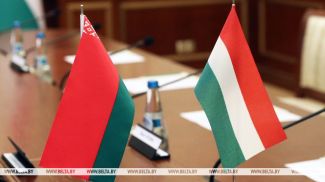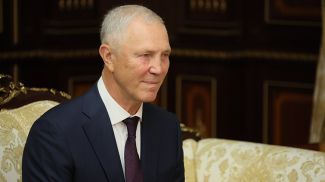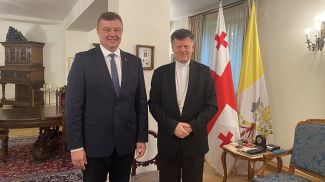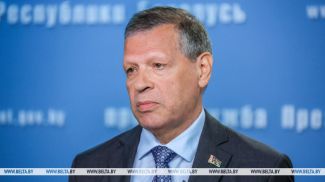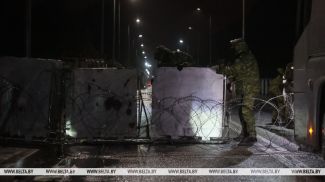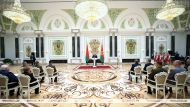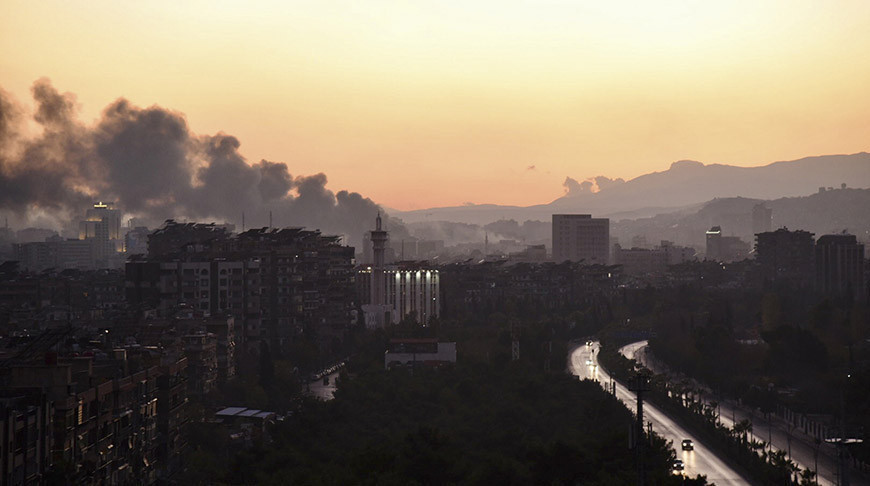
On the night of 8 December, the Syrian armed opposition entered Damascus. The country's President Bashar al-Assad resigned as head of state and left Syria, instructing to have a peaceful transfer of power. The National Coalition for Syrian Revolutionary and Opposition Forces has said that it is working on forming a transitional power body.
The West hailed the end of Assad's rule in Syria a “positive and long-awaited event”. This position was expressed, in particular, by German Chancellor Olaf Scholz, French President Emmanuel Macron and the head of European diplomacy, Kaja Kallas.
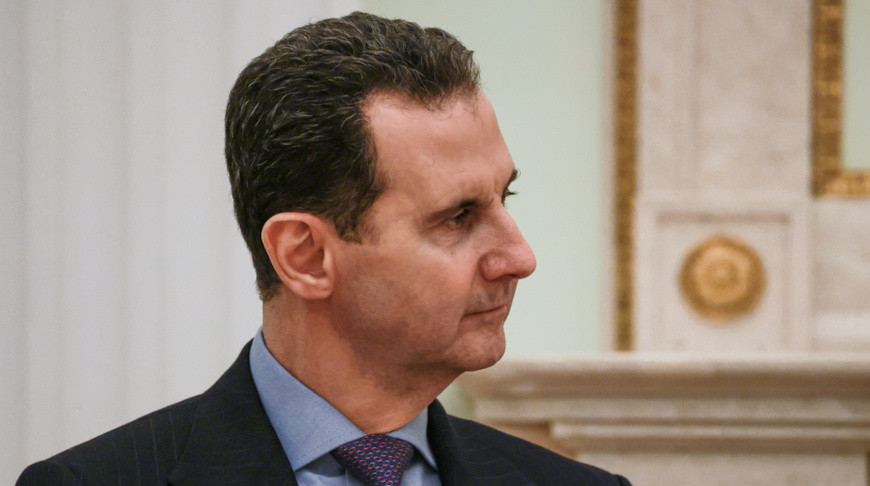
However, experts do not share the optimism of Western officials, predicting new trials for the Syrian people. Predictions vary from a possible civil war and the partition of the state to the formation of an Islamic republic led by Hayat Tahrir al-Sham, a group created on the basis of the terrorist organization Jabhat al-Nusra.
The crisis in Syria did not begin today or yesterday. Dramatic events in the country have been taking place for more than a decade. Civil war, terrorist threats, Western sanction siege, and most importantly, the impossibility or inability of the Syrian authorities to find a compromise and unite the country - all this brought Syria to the current situation. And, of course, it was not without external intervention.
According to him, after the Russian troops were deployed in 2015 the situation stabilized, but the Assad government did not implement any serious economic and political reforms, contrary to the recommendations of the Russian and Iranian authorities and the agreements within the framework of the Astana and Geneva formats. Thus the country did not manage to eradicate the very problems that led to the Arab Spring and the civil war: corruption, ineffective governance, nepotism in the civil service and the armed forces, the expert said. This was compounded by the lack of progress in economic recovery, which was greatly hampered by U.S. sanctions.
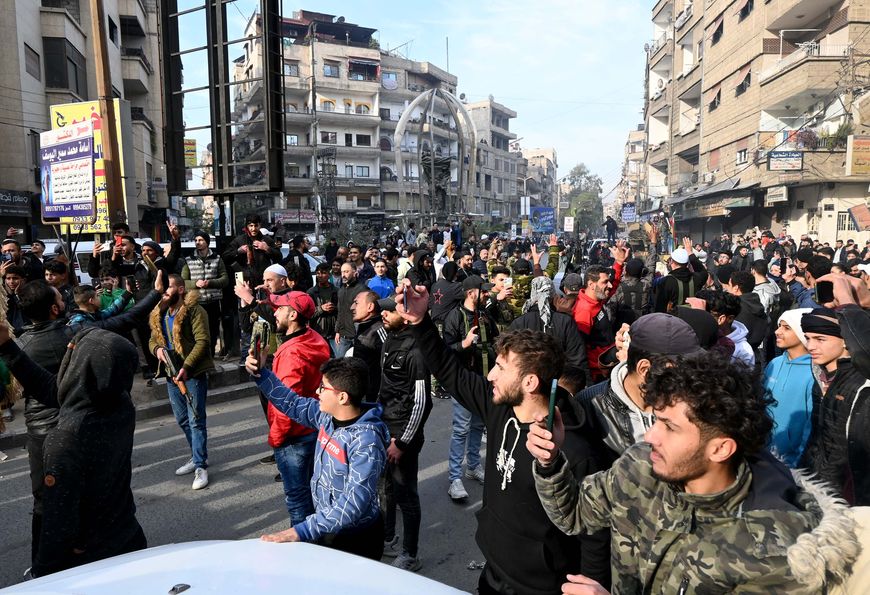
Chinese military expert Song Zhongping told the Global Times that events in Syria could lead to an increase in the terrorist threat. According to him, terrorists and extremists now have weapons and resources left by Syrian government forces, potentially enabling them to conduct more attacks within and outside the region.
The whole world watched the rapid development of events in Syria over the weekend. The situation in the Middle East is already heated. Israel has already called Syria the fourth front, and on the night of 9 December, the Israeli army seized control of additional areas in the buffer zone on the Syrian border. Meanwhile, the U.S. military launched airstrikes against 75 targets in Syria, including the Islamic State terrorist group.
The West hailed the end of Assad's rule in Syria a “positive and long-awaited event”. This position was expressed, in particular, by German Chancellor Olaf Scholz, French President Emmanuel Macron and the head of European diplomacy, Kaja Kallas.

However, experts do not share the optimism of Western officials, predicting new trials for the Syrian people. Predictions vary from a possible civil war and the partition of the state to the formation of an Islamic republic led by Hayat Tahrir al-Sham, a group created on the basis of the terrorist organization Jabhat al-Nusra.
BelTA's review looks into the causes behind the recent events in Syria, the beneficiaries and the possible scenarios for the development of the situation.
What or who is behind the events in Syria?
What or who is behind the events in Syria?
The crisis in Syria did not begin today or yesterday. Dramatic events in the country have been taking place for more than a decade. Civil war, terrorist threats, Western sanction siege, and most importantly, the impossibility or inability of the Syrian authorities to find a compromise and unite the country - all this brought Syria to the current situation. And, of course, it was not without external intervention.
The domestic political reasons played the primary role in the fall of the Assad government, Grigory Lukyanov, a researcher at the Institute of Oriental Studies of the Russian Academy of Sciences, a senior lecturer at the Higher School of Economics, said in a interview with RBC.
According to him, after the Russian troops were deployed in 2015 the situation stabilized, but the Assad government did not implement any serious economic and political reforms, contrary to the recommendations of the Russian and Iranian authorities and the agreements within the framework of the Astana and Geneva formats. Thus the country did not manage to eradicate the very problems that led to the Arab Spring and the civil war: corruption, ineffective governance, nepotism in the civil service and the armed forces, the expert said. This was compounded by the lack of progress in economic recovery, which was greatly hampered by U.S. sanctions.

“Under these conditions, the Syrian army (the army that was formed in war conditions with the support of Iranian and Russian military advisers) began to shrink because the government literally had no money to pay for it,” Grigory Lukyanov said. “As a result, the Syrian government abandoned mobilization and recruitment, leaving only a professional army that it had virtually nothing to pay with. As a result, the motivation of the armed forces was reduced to a minimum. Its professionalism also plummeted.
The situation continued to deteriorate amid the stagnated fighting after the March 2020 truce: Damascus cared less and less about rearming and re-equipping its army, the expert said.
The situation continued to deteriorate amid the stagnated fighting after the March 2020 truce: Damascus cared less and less about rearming and re-equipping its army, the expert said.
The geopolitical situation played a secondary yet important role, Grigory Lukyanov said. Russia's top priority was the military operation in Ukraine. Iran's position was significantly weakened by the confrontation with Israel. The pro-Iranian group Hezbollah, which was the most capable force on the battlefield in Syria, was now fully involved in the conflict with Israel and could not help Assad either. The support that the U.S., Türkiye and Israel provided to the Syrian groups in Idlib was also important.
In a conversation with the Russian newspaper Vzglyad, Israeli political scientist, expert on international relations and national security Simon Tsipis noted that the armed formations that seized power in Syria were trained by Western countries.
In a conversation with the Russian newspaper Vzglyad, Israeli political scientist, expert on international relations and national security Simon Tsipis noted that the armed formations that seized power in Syria were trained by Western countries.

"The government in Syria was overthrown by West-controlled groups. Hayat Tahrir al-Sham and other groups carry out their operations with the help of the US and UK intelligence services. Tel Aviv also took part in training their specialists," Tsipis believes.
In his opinion, the overthrow of Bashar al-Assad plays into Israel's hands. "This is a long-standing enemy of the Jewish state. Right now, the IDF is striking Syrian airfields, helping rebels to finish off the government forces. Syria is being consistently turned into a devastated, bloodless state," the expert remarked.
Tsipis believes that the West wants to create controlled chaos. It wants a territory with no solid government capable of defending the interests of its people. In this case Israel will have no opponents left capable of delivering any significant blow to it. "Syria will not see stability for many decades to come. Even if a certain leader establishes himself there, he will most likely be a Western protégé," Tsipis concluded.
Boris Dolgov, a leading research fellow at the Center for Arab and Islamic Studies, told TASS that the events in Syria were a planned and calculated military operation.
"What is happening is a planned military operation to topple the leadership of Syria. This is absolutely obvious. And the forces behind it got their instructions from external players: the United States, Türkiye, and Israel," the expert said.
He noted that the situation in the republic continues to deteriorate and the armed opposition's seizure of power will significantly change the geopolitical landscape in the region. "Their coming to power could signal a significant shift of balance in the Middle East, because if such forces come to power, Syria will fall apart, at the very least. Syria will be dismembered, there might be some kind of enclave and other areas, including areas where Russian military bases are located (their future is a matter of a separate discussion),” the expert remarked.
Who will benefit?
Vladimir Sazhin, a senior research fellow at the Institute of Oriental Studies of the Russian Academy of Sciences, believes that the events in Syria could strengthen Türkiye’s role in the region and have repercussions for Iran.
"Iran appears to lose the most from the fall of Bashar al-Assad's government. Syria was seen as a ‘golden stone’ in the Shiite chain of influence. We should not lose sight of the fact that the collapse of the government occurred against the backdrop of the significant weakening of Hezbollah, which was also part of Tehran's axis of influence," Sazhin said in an interview with the Vzglyad newspaper.
There is nothing Iran can do about it, so it will have to accept a new reality and negotiate with the new Syrian government in the hope of establishing at least some diplomatic relations.
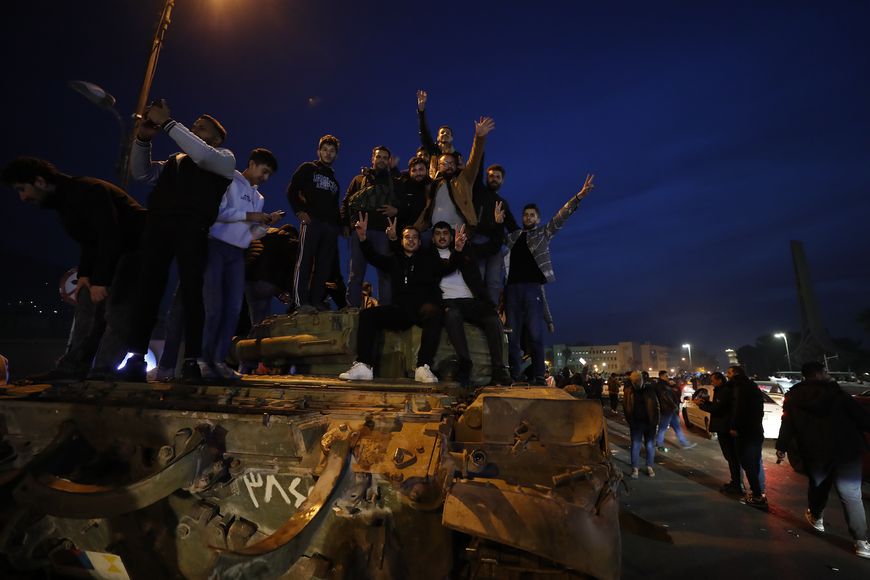
"Whether Tehran will succeed is a big question. Hayat Tahrir al-Sham called Iran their second biggest enemy after the Bashar al-Assad regime. It is quite difficult to expect a sustainable dialogue in such a situation," the expert believes.
On the other hand, Türkiye looks like the biggest winner in this situation. The country has increased its influence in the region and established itself as an important international player, Sazhin noted.
"For Ankara, this is another step towards cementing its growing international influence and strengthening its positions in the region. It is quite possible that the fall of the Syrian government will complicate the country's relations with Iran, but there will be no violent clashes between them," the expert believes.
Assad's collapse was perceived with mixed feelings in Israel. "On the one hand, the Jewish state got rid of a fairly strong player who openly brandished his close ties with Tehran. Theoretically, this could be good for the country's security. However, it is not entirely clear how the future Syrian government will look like. It is quite possible that radical Islamists will come to power who will view Tel Aviv as their new archenemy. Nevertheless, it is already clear that the situation in the Middle East has become significantly more complicated. The fragile balance of power in the region has been shattered," Sazhin concluded.
In his opinion, the overthrow of Bashar al-Assad plays into Israel's hands. "This is a long-standing enemy of the Jewish state. Right now, the IDF is striking Syrian airfields, helping rebels to finish off the government forces. Syria is being consistently turned into a devastated, bloodless state," the expert remarked.
Tsipis believes that the West wants to create controlled chaos. It wants a territory with no solid government capable of defending the interests of its people. In this case Israel will have no opponents left capable of delivering any significant blow to it. "Syria will not see stability for many decades to come. Even if a certain leader establishes himself there, he will most likely be a Western protégé," Tsipis concluded.
Boris Dolgov, a leading research fellow at the Center for Arab and Islamic Studies, told TASS that the events in Syria were a planned and calculated military operation.
"What is happening is a planned military operation to topple the leadership of Syria. This is absolutely obvious. And the forces behind it got their instructions from external players: the United States, Türkiye, and Israel," the expert said.
He noted that the situation in the republic continues to deteriorate and the armed opposition's seizure of power will significantly change the geopolitical landscape in the region. "Their coming to power could signal a significant shift of balance in the Middle East, because if such forces come to power, Syria will fall apart, at the very least. Syria will be dismembered, there might be some kind of enclave and other areas, including areas where Russian military bases are located (their future is a matter of a separate discussion),” the expert remarked.
Who will benefit?
Vladimir Sazhin, a senior research fellow at the Institute of Oriental Studies of the Russian Academy of Sciences, believes that the events in Syria could strengthen Türkiye’s role in the region and have repercussions for Iran.
"Iran appears to lose the most from the fall of Bashar al-Assad's government. Syria was seen as a ‘golden stone’ in the Shiite chain of influence. We should not lose sight of the fact that the collapse of the government occurred against the backdrop of the significant weakening of Hezbollah, which was also part of Tehran's axis of influence," Sazhin said in an interview with the Vzglyad newspaper.
There is nothing Iran can do about it, so it will have to accept a new reality and negotiate with the new Syrian government in the hope of establishing at least some diplomatic relations.

"Whether Tehran will succeed is a big question. Hayat Tahrir al-Sham called Iran their second biggest enemy after the Bashar al-Assad regime. It is quite difficult to expect a sustainable dialogue in such a situation," the expert believes.
On the other hand, Türkiye looks like the biggest winner in this situation. The country has increased its influence in the region and established itself as an important international player, Sazhin noted.
"For Ankara, this is another step towards cementing its growing international influence and strengthening its positions in the region. It is quite possible that the fall of the Syrian government will complicate the country's relations with Iran, but there will be no violent clashes between them," the expert believes.
Assad's collapse was perceived with mixed feelings in Israel. "On the one hand, the Jewish state got rid of a fairly strong player who openly brandished his close ties with Tehran. Theoretically, this could be good for the country's security. However, it is not entirely clear how the future Syrian government will look like. It is quite possible that radical Islamists will come to power who will view Tel Aviv as their new archenemy. Nevertheless, it is already clear that the situation in the Middle East has become significantly more complicated. The fragile balance of power in the region has been shattered," Sazhin concluded.
Meanwhile, India's The Economic Times reported that the fall of Assad's regime and the strengthening of extremist forces in the region will be a setback for India in the Islamic world. Damascus ruled by Assad had backed the Indian position on the Kashmir issue (a disputed territory between India and Pakistan), actively developed political ties with New Delhi and maintained limited ties with Pakistan.
"The Bashar Al-Assad government was of the opinion that New Delhi had the right to solve the Kashmir issue in any manner. India on its part backed the Assad regime during the ISIS campaign, with Syria being a key partner in the Arab world," The Economic Times said.
Assad's downfall may lead to rebirth of ISIS, which Syria defeated almost a decade back with support of Russia and Iran. This will lead to security challenges for India.
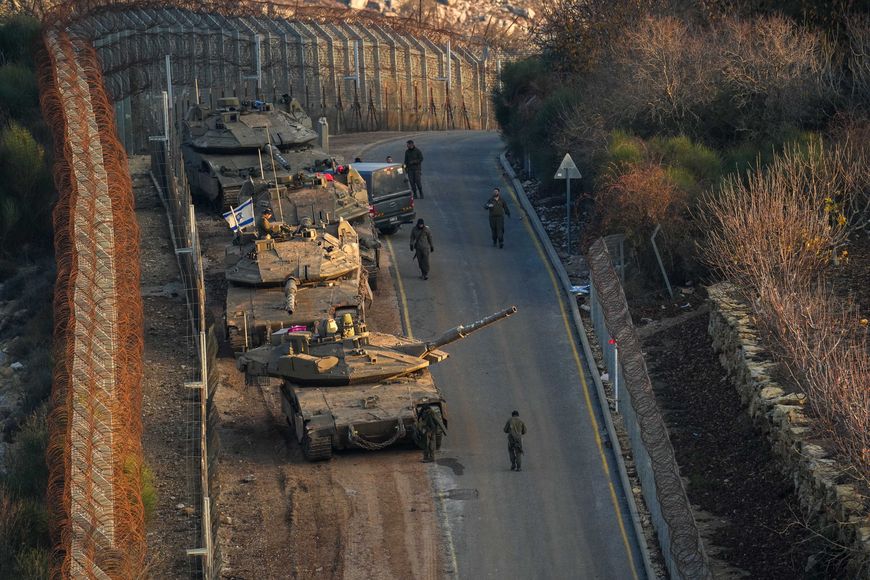
How will the situation develop?
Berkan Tutar, a columnist for the pro-government Turkish newspaper Sabah, considered five options for the situation in Syria.
The first scenario involves the establishment of the Syrian Democratic Republic. However, this would be difficult to implement, as the Syrian opposition is extremely heterogeneous and has ideological differences. Still, this option guarantees the territorial integrity of Syria, so it could be supported by external players: Türkiye, Russia, the United States, European countries, Qatar and, to some extent, Israel.
The second scenario involves the creation of the Islamic Republic of Syria, where the representatives of Hayat Tahrir al-Sham will be the backbone of the new government. In this case, Syria would be governed by representatives of the Salafis (a movement in Sunni Islam), who do not harbor ideological hostility towards Israel and the USA and would adhere to a pragmatic approach in relations with Türkiye.
The third scenario provides for the creation of an anti-Shia Arab state under Israeli control. The government of such a country would be against Iran and Lebanon's Hezbollah. Given the geographic location of Syria, this would enable Israel to deprive Hezbollah of logistical and military support from Iran.
"The Bashar Al-Assad government was of the opinion that New Delhi had the right to solve the Kashmir issue in any manner. India on its part backed the Assad regime during the ISIS campaign, with Syria being a key partner in the Arab world," The Economic Times said.
Assad's downfall may lead to rebirth of ISIS, which Syria defeated almost a decade back with support of Russia and Iran. This will lead to security challenges for India.

How will the situation develop?
Berkan Tutar, a columnist for the pro-government Turkish newspaper Sabah, considered five options for the situation in Syria.
The first scenario involves the establishment of the Syrian Democratic Republic. However, this would be difficult to implement, as the Syrian opposition is extremely heterogeneous and has ideological differences. Still, this option guarantees the territorial integrity of Syria, so it could be supported by external players: Türkiye, Russia, the United States, European countries, Qatar and, to some extent, Israel.
The second scenario involves the creation of the Islamic Republic of Syria, where the representatives of Hayat Tahrir al-Sham will be the backbone of the new government. In this case, Syria would be governed by representatives of the Salafis (a movement in Sunni Islam), who do not harbor ideological hostility towards Israel and the USA and would adhere to a pragmatic approach in relations with Türkiye.
The third scenario provides for the creation of an anti-Shia Arab state under Israeli control. The government of such a country would be against Iran and Lebanon's Hezbollah. Given the geographic location of Syria, this would enable Israel to deprive Hezbollah of logistical and military support from Iran.
The fourth scenario implies the creation of a Federal Republic of Syria under the auspices of the US. Thus, the country would be balkanized into small “pocket states” that would be under the influence of Sunnis, Kurds, Druze and Nusayrites. Israel will support the creation of such a "patchwork" state.
The fifth and final scenario envisages split and disintegration in Syria. In other words, an escalation of the civil war. This would lead to total collapse of Syria and its political division into Sunni, Kurdish, Druze and Nusayrite states.
Orientalist Andrey Ontikov believes that it is still difficult to make predictions about the situation in Syria. In a interview with Izvestia newspaper, he also outlined several possible scenarios for the development of events.
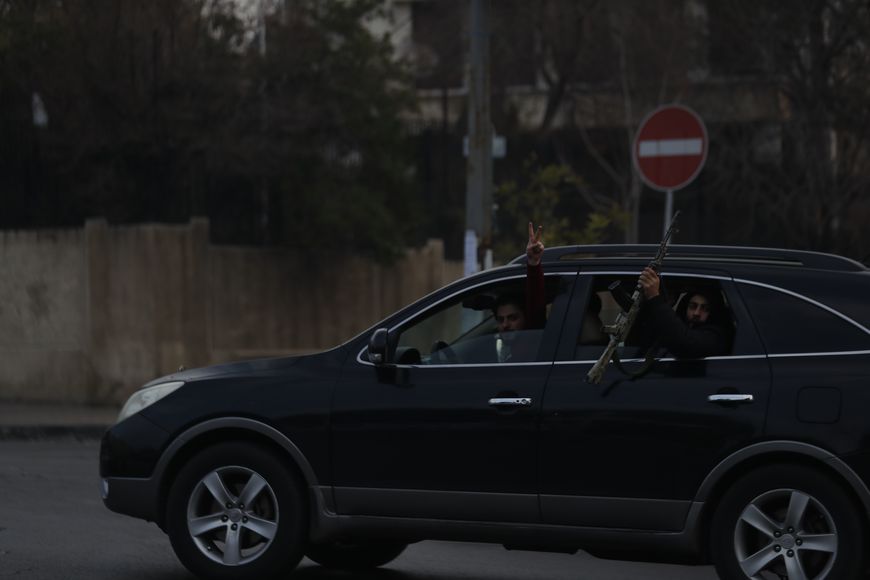
"The first one involves the plunge of Syria into chaos as it was in Libya. This scenario is based on the events that regularly happened in Idlib: clashes and hostilities broke out between various terrorist, opposition groups. And then Syria would be lost for years," the analyst said.
He pointed out that Türkiye, the US and Israel could keep the opposition formations from such a scenario. "There are also a lot of external players in Libya. Nevertheless, the situation has been constantly tense and turbulent since 2011. Hostilities periodically break out even in Tripoli," the expert explained.
According to the political scientist, the second scenario does not exclude the collapse of Syria. Or even if the country is formally united, it would be divided into zones of influence. "Most likely, Israel would expand the zone of its occupation under the pretext of creating some kind of sanitary zone near the occupied Golan Heights," he stated.
According to the analyst, a combination of these two scenarios is also possible.
In turn, orientalist Yelena Suponina noted that the opposition groups are united in their bid to overthrow President Assad, but it will be very difficult for them to build a new Syria together.
The fifth and final scenario envisages split and disintegration in Syria. In other words, an escalation of the civil war. This would lead to total collapse of Syria and its political division into Sunni, Kurdish, Druze and Nusayrite states.
Orientalist Andrey Ontikov believes that it is still difficult to make predictions about the situation in Syria. In a interview with Izvestia newspaper, he also outlined several possible scenarios for the development of events.

"The first one involves the plunge of Syria into chaos as it was in Libya. This scenario is based on the events that regularly happened in Idlib: clashes and hostilities broke out between various terrorist, opposition groups. And then Syria would be lost for years," the analyst said.
He pointed out that Türkiye, the US and Israel could keep the opposition formations from such a scenario. "There are also a lot of external players in Libya. Nevertheless, the situation has been constantly tense and turbulent since 2011. Hostilities periodically break out even in Tripoli," the expert explained.
According to the political scientist, the second scenario does not exclude the collapse of Syria. Or even if the country is formally united, it would be divided into zones of influence. "Most likely, Israel would expand the zone of its occupation under the pretext of creating some kind of sanitary zone near the occupied Golan Heights," he stated.
According to the analyst, a combination of these two scenarios is also possible.
In turn, orientalist Yelena Suponina noted that the opposition groups are united in their bid to overthrow President Assad, but it will be very difficult for them to build a new Syria together.
“The opposition will be on a wave of euphoria for a while. They will be engaged in the distribution of power, immediately launching the fight for financial flows and power. We should not forget that the opposition is initially divided for ideological, religious and other reasons. In addition, there is a huge number of weapons in the hands of the population. Therefore, new armed conflicts are inevitable, and the dividing lines, especially in areas densely populated by Kurds, will remain in place. There will be clashes between individual Kurdish formations, despite the fact that the USA has taken them under its wing, and the groups that are under the influence of Türkiye,” the expert told Izvestia.
Andrei Koshkin, head of the political science and sociology department at the Plekhanov Russian University of Economics, believes that Syria's future will be clarified by the composition of the transitional government. “The situation here is quite complicated of course. There is shooting in the streets of Damascus. It should be said that these events characterize the collapse that has hit this country,” the expert said in a conversation with TASS.
In his words, the situation is changing dynamically, and its contours will become clearer when it is known “what kind of transitional government will be in the Syrian Arab Republic”. “The question is what will be with our military bases in Latakia,” Andrei Koshkin added.
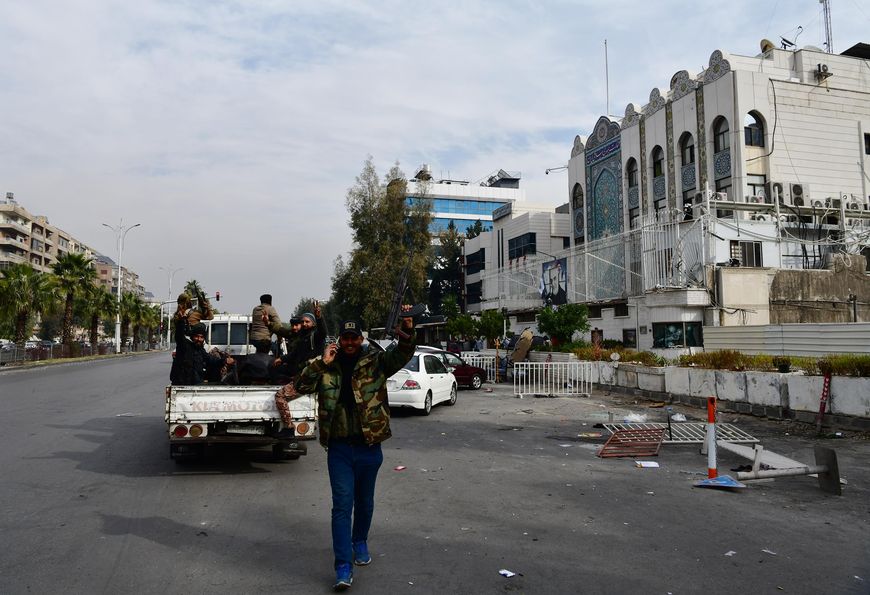
The first statements by Syrian Prime Minister Mohammed Ghazi al-Jalali that the issue of Russia's military presence in Syria will be decided by the new authorities indicate a future change in the political vector. “The vector of the country's development is to change, and his statements are radical in nature, as we can assess it,” Andrei Koshkin said.

The first statements by Syrian Prime Minister Mohammed Ghazi al-Jalali that the issue of Russia's military presence in Syria will be decided by the new authorities indicate a future change in the political vector. “The vector of the country's development is to change, and his statements are radical in nature, as we can assess it,” Andrei Koshkin said.
One of Türkiye’s leading security experts Abdullah Agar believes that Russia will try to maintain its presence in Syria. “Since the times of the Soviet Union, Russia has had initiatives in these seas, particularly in the Mediterranean Sea. The issue is not just about Syria. This is a struggle between the United States and Russia in the global arena, a question of dominance,” Abdullah Agar said.
In his opinion, under the current changes in Syria, Russia will not want to lose its positions and initiatives in the region. “In my opinion, it will try to somehow continue its work there. However, there is serious pressure now, especially in Latakia. This pressure is both direct and indirect. The main source of this pressure is the USA,” the expert pointed out.
Should we expect an increase in terrorist threats?
Chinese military expert Song Zhongping told the Global Times that events in Syria could lead to an increase in the terrorist threat. According to him, terrorists and extremists now have weapons and resources left by Syrian government forces, potentially enabling them to conduct more attacks within and outside the region.
According to the expert, the restoration of peace and order in Syria requires not only consensus-building efforts inside the country, but also efforts on the part of the international community.
The threat of terrorist groups spreading against the backdrop of possible chaos in Syria threatens the Middle East as a whole, as well as Central Asia and the Caucasus, Izvestia noted. It should be noted that the participation of the Russian Armed Forces in the Syrian conflict on the side of the government forces was aimed at eliminating the hotbed of international terrorism in Syria.
Given the destabilization in Syria, militants from Katibat al-Tawhid wal-Jihad, Hayat Tahrir al-Sham and related organizations can be expected to move to Central Asia and the Caucasus, analyst Tigran Meloyan from the HSE Mediterranean Studies Center said.
“The lessons of Afghanistan, Iraq, Libya and Syria speak for themselves: civil wars not only create humanitarian disasters, but also remain a breeding ground for terrorist networks that can reach each of us. Terrorism does not stand still, it is a contagion that spreads like a plague,” the analyst added.
Vita Khanatayeva, photos by TASS, Xinhua, BelTA




